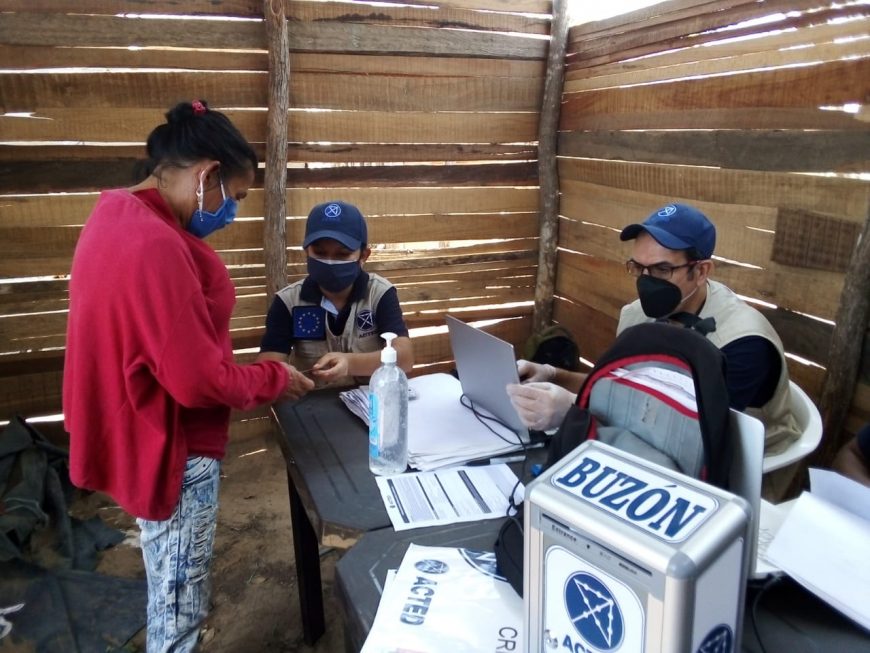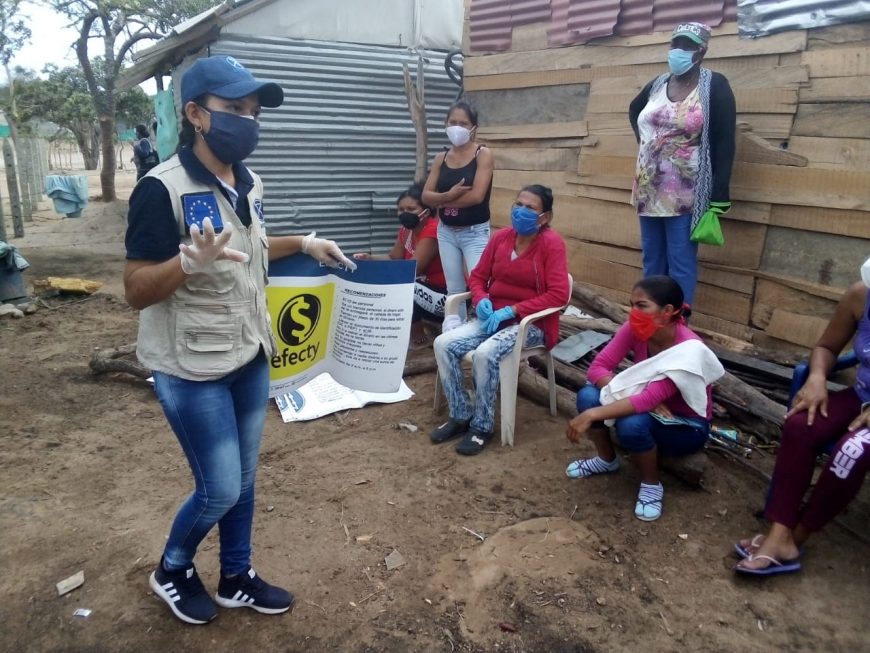13 May 2020.
In the municipalities of Fonseca and Riohacha, a large number of Venezuelans and Colombians who returned from Venezuela live in informal settlements, where improvised shelters are made of makeshift materials. As their main source of livelihood comes from informal sales or recycling, which requires leaving the house, the current movement restrictions imposed by the Colombian government to prevent the Covid-19 contagion results in their inability to work, which increases their risk of food insecurity and malnutrition.
In April and May 2020, after the sanitary emergency was declared by the Colombian authorities, ACTED supported more than 550 vulnerable families, with one round of cash transfer – thanks to funding from ECHO.
Despite the challenges related to Covid-19 prevention measures, ACTED managed to adapt its modality of intervention to ensure the continuity of its actions, making sure people can still receive much-needed help during this critical time.
Amidst Covid-19 crisis, precarious living conditions worsen for vulnerable migrants and host communities
Since 2017, the number of Venezuelan migrants and refugees in Colombia has risen due to the rampant socio-economic crisis in Venezuela. Most of them left a difficult situation in their home country, and despite finding peace in Colombia, settling in a new country can be arduous, due to downward cycles of poverty and precariousness. Because of a series of obstacles and the prevalence of an irregular status among them, over 60% rely on informal sectors as their only source of income. The arrival of migrants represents an additional constraint for the host communities, as they now have to share limited resources. All of these vulnerabilities have been accentuated during the Covid-19 crisis.

With the help of ACTED I bought a fan, a mattress since we had nothing at our home. I bought food too so now we can eat three meals a day.
ACTED supports vulnerable families through cash intervention amidst the Covid-19 crisis
ACTED has been supporting communities in underserved municipalities of La Guajira Department in the North of the country. Through an intervention focused on ensuring a social protection response to Covid-19, in April and May, ACTED has provided assistance to 568 vulnerable households in Riohacha and Fonseca through one round of cash transfers. Furthermore, teams on the field have organized campaigns to raise awareness on nutrition and Covid-19 prevention best practices. The purpose of this activity is to help alleviate financial barriers some families face to access goods and services during these critical times.
The project, named “Regional Humanitarian Assistance: A response to the Venezuelan socio-economic crisis and its migratory consequences in Colombia, Ecuador and Peru“, was made possible thanks to funding from the European Union Civil Protection and Humanitarian Aid Operations (ECHO), in Consortium with three partners of the Alliance2015.

Buying food, medicines, and improving their shelter
Thanks to the support provided by ACTED, families have been able to improve their living conditions by covering their most urgent needs: purchasing food, medicine, basic furniture and equipment such as mattresses and fans, and shelter material. With additional money, those who have lost their income were able to stay home, protecting themselves and their relatives from the virus. As beneficiaries have told ACTED, this assistance was essential as it guaranteed their children three meals a-day; and has also given them the means to better cope with the financial difficulties that have resulted from the Covid-19 crisis.
Marta, a venezualian migrant living in Colombia explains that they’ve been in Fonseca since they arrived. With no family and sometimes not enough to eat, it’s been difficult for them. “With the help of ACTED I bought a fan, a mattress since we had nothing at our home. I bought food too so now we can eat three meals a day. I share the groceries with the neighbors because they have always been here for us.”, she says.
